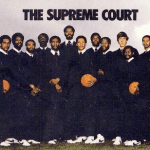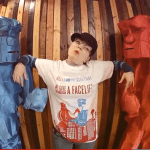 Before NBA commissioner David Stern steps down from his pulpit and slinks away into retirement next February 14, the citizens of Seattle should mount a class action lawsuit for racketeering against his NBA office in collusion with Howard Schultz and Clay Bennett, in particular because the city of Seattle, the team’s willing financiers Steve Ballmer, Erik and Peter Nordstrom and Sonics’ fearless crusader Chris Hansen cannot.
Before NBA commissioner David Stern steps down from his pulpit and slinks away into retirement next February 14, the citizens of Seattle should mount a class action lawsuit for racketeering against his NBA office in collusion with Howard Schultz and Clay Bennett, in particular because the city of Seattle, the team’s willing financiers Steve Ballmer, Erik and Peter Nordstrom and Sonics’ fearless crusader Chris Hansen cannot.
As a pre-condition of the city’s failed bidding attempt for an NBA team relocation, and after locking away millions in an NBA escrow account, Stern’s legal office required our fair city and its pending ownership team to waive the right to appeal to a higher court of law if they lost in their acquisition attempt (a provision itself that seems unconstitutional). Even after delays on the part of the NBA, and a first round rejection of the richest offer in history for an NBA franchise, our dedicated ownership team’s hands are now tied. Only citizens are free to grab the ball, take it to the next highest court, and take our best shot before the final buzzer.
Like the NFL’s Green Bay Packers, the only community-owned major league professional sports team in the United States, our citizenry should show some class and file a class-action lawsuit.
Let’s be very clear. We’re not advocating for community ownership of the Sonics. We have a great ownership team. We’re advocating a community class-action complaint as the injured party, the upended season ticket holders, the local businesses, the tens of thousands of spurned Sonic fans who have been literally and figuratively disenfranchised. Against this backdrop of racketeering, the NBA should right its wrong through expansion or relocation.
A racket is a service that is fraudulently offered to solve a problem, such as for a problem that does not actually exist, or would not otherwise exist. The potential problem may be caused by the same party that offers to solve it, although that fact may be concealed, with the specific intent to engender continual patronage for this party. The anti-racketeering act, know as RICO, states that a defendant can be anyone who uses a business in any way to commit two or more of the many racketeering offenses.
The Sonics transaction is a case in point. There was no reason Howard Schutz and his investor group could not have sold the Sonics team to another group of local Seattlites. The “racket” was that the team needed to be sold to Oklahoma City businessman Clay Bennett, who then perpetrated the problem he promised to solve. How ironic that Bennett is also the chairman of the NBA Relocation Committee which voted unanimously on Monday against relocating the Sacramento Kings to Seattle.
Two wrongs don’t make a right. It is the OKC Thunder that is Seattle’s legacy team, including our draft pick, scoring leader Kevin Durant and Nick Collison on the low post. Let’s treat the racketeering in chronological order, shall we?
There exists direct evidence that Howard Schultz, David Stern and Clay Bennett willfully and deliberately conspired to defraud the people of Seattle with a change in ownership by falsely asserting that the sale of the team to Oklahoma City was a.) executed in good faith and b.) predicated on keeping the team in Seattle. Events put the lie to these statements.
Public statements by Ross Hunter, a sworn public official and head of the Legislature’s House Finance Committee has revealed in no uncertain terms that the lawful “due diligence” process to keep the Sonics in Seattle was willfully subverted by Bennett and his minions.
“These guys weren’t serious,” stated Hunter, who sat across the desk from the new owners, face-to-face, and took the full measure of their sincerity. “They made no significant effort to pass the bill. Nothing.”
It bears repeating, “They made no significant effort.”
We know the rest of the charade. Bennett then began to gut the team, cut salaries, and prepare for evacuation.
We were sucker-punched.
On October 15, 1970, the Racketeer Influenced and Corrupt Organizations Act, commonly referred to as the “RICO Act“, became United States law. The RICO Act allowed law enforcement to charge a person or group of people with racketeering, defined as committing multiple violations of certain varieties within a ten-year period. We are still within the time frame. The purpose of the RICO Act was stated as “the elimination of the infiltration of racketeering into legitimate organizations operating in interstate commerce.” The decision to perpetuate the racket by not allowing Seattle back into the league gives us new standing. [24×7]
Seattle’s “Hella Fresh,” Datavizualizn’ “Killa Crib” Needs Your Vote!
Contender Killer Infographics has been nominated for the Geekiest Office Space in the Northwest, but it can use your help. While it seems like a kind of funny award, it’s actually pretty important to this posse. The reason, according to co-founder Amy Balliett, is because “the workspace really exemplifies who we are as a team: passionate, geeky and collaborative. This is our 5th office in 2 years because we’ve grown out of all our other spaces.”
Amy on background: “When we found this place, we all felt like we finally found a home for Killer Infographics and proceeded to inject as much creativity into the space as possible over the last 4 months. We designed this space as a team and spent our evenings and weekends at Home Depot buying materials and then back at the office with hammers, saws and paint buckets building all the furniture ourselves.”
 “Our space has a BUNCH of awesome stuff including, but not limited to, an indoor rock climbing wall, a sound recording booth in an abandoned elevator shaft, a bookcase that leads to a hidden room, private rooftop deck and more. Other offices are cool, but they don’t have the history and passion ours has.”
“Our space has a BUNCH of awesome stuff including, but not limited to, an indoor rock climbing wall, a sound recording booth in an abandoned elevator shaft, a bookcase that leads to a hidden room, private rooftop deck and more. Other offices are cool, but they don’t have the history and passion ours has.”
KI created a very funny video to win votes, which you can view here: http://www.youtube.com/watch?v=kx_KVJQhXp4 and you can vote for the Geekiest Office space here: http://bit.ly/vote4killer.
Better hurry! Voting winds up tomorrow, April 30. May day will be too late! [24×7]



















